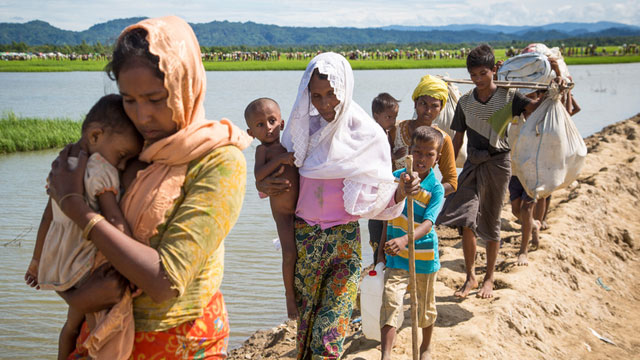The United Nations World Food Programme (WFP) has welcomed a contribution of 2 million euro from the European Union (EU) for its emergency operation in Bangladesh.
It will help WFP sustain lifesaving food assistance to Rohingya refugees, and address the high rates of malnutrition among children and mothers. This will help protect the Rohingyas from monsoon season risks.
“Two years on since the biggest influx of the Rohingya refugees to Bangladesh, the situation in the camps in Cox’s Bazar remains critical,” says Richard Ragan, WFP Representative and Country Director in Bangladesh.
Ragan said 80 percent of nearly 1 million refugees depend entirely on WFP’s food assistance. “This timely funding from the EU will help us support the most vulnerable children and women. Part of it will also go towards our disaster preparedness work in the camps.”
Cox’s Bazar is the largest and most densely populated refugee camp in the world.
The Rohingyas are facing heightened risks during the current monsoon season. Camps have already been flooded and threatened with landslides.
The new EU contribution will help WFP ensure that refugee needs are met during this challenging time, said a press release.
In 2018, the EU provided 12 million euro to help WFP respond to the urgent needs of the most vulnerable Rohingya refugees, playing a major role in enabling WFP’s continuing transition from in-kind food distribution to an electronic voucher system.
Half of all refugees now receive food assistance through e-vouchers and by early next year all refugees will receive food this way.
“Through our collective efforts, we’ve saved many lives since the Rohingya crisis began over two years ago,” said Christos Stylianides, the EU Commissioner for Humanitarian Aid and Crisis Management.
“The challenge however is far from over as hundreds of thousands of Rohingya rely on humanitarian aid to survive,” Stylianides said.
“This latest contribution from the European Union is a testament to our continued commitment to help those in need, ensuring that they continue to receive life-saving food assistance from our partner WFP while being protected from the effects of the monsoons.”





